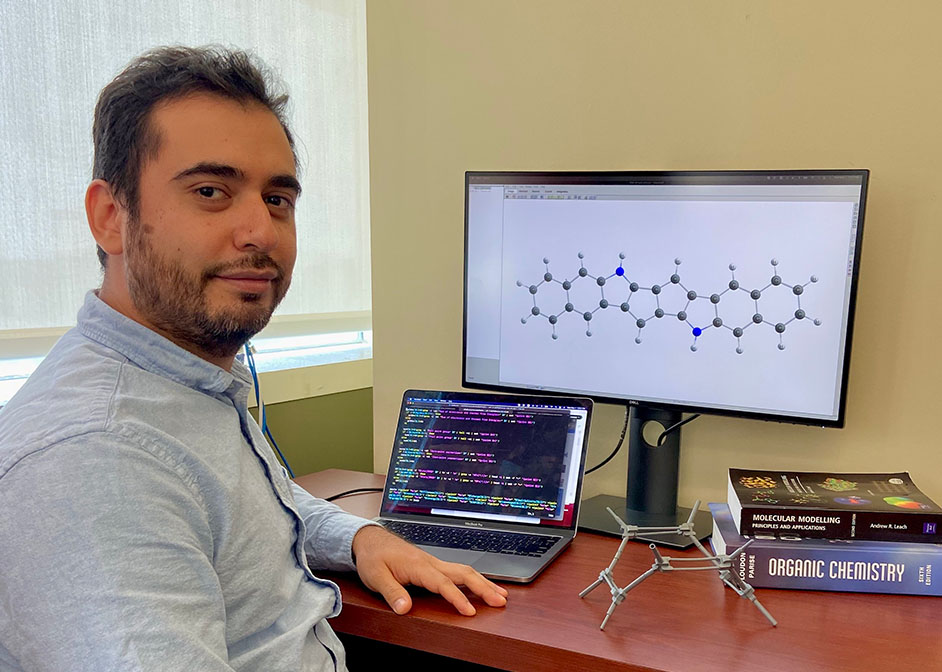Program Prepares Early-Career Scientists for Future Faculty Careers
The Research Corporation for Science Advancement (RCSA) announced the selection of Said Jalife Jacobo, a University of Houston postdoctoral fellow in chemistry, as a member of its inaugural class of RCSA Fellows.

RCSA is a private foundation that funds basic research in the physical sciences at colleges and universities in the United States and Canada.
The new RCSA Fellows program aims to increase faculty diversity in physical sciences. It identifies individuals who exhibit extraordinary potential to drive innovation and make significant contributions to scientific discovery.
Preparing Early Career Researchers
Jacobo is one of eight postdoctoral scholars selected for the first cohort, and the only member from a Texas university. The group will participate in a multiyear program that includes job search preparation, a mock interview at a host institution, along with feedback and guidance. The goal is to prepare fellows for a tenure-track faculty position.
By joining the ranks of RCSA Fellows, Jacobo gains access to a diverse network of peers and mentors, creating opportunities for interdisciplinary collaboration and knowledge exchange.
“I am thrilled to be a part of the RCSA Fellows program,” Jacobo said. “The additional support will be a great help in my preparation and search for a tenure-track faculty position. I am very grateful to the RCSA for their support, also to my supervisor, Professor Judy Wu, for her continuous encouragement, and to Professor Ognjen Miljanic for nominating me for this groundbreaking program.”
As an RCSA Fellow, Jacobo will have the opportunity to further develop his research agenda, pursue ambitious projects, and mentor the next generation of scientists.
Support for New Opportunities
One of Jacobo's standout contributions lies in the fields of renewable energy and efficient energy consumption.
“My research focuses on exploiting quantum chemistry tools to develop structure-property relationships for the rational design of polycyclic antiaromatic hydrocarbons with enhanced optoelectronic properties,” Jacobo explained.
Quantum chemistry tools allow scientists to see how atoms and molecules behave on a small scale, smaller than a microscope. By using these tools, Jacobo aims to understand how the arrangement of atoms in these molecules interacts with light and electricity.
“This work has the potential to revolutionize the field of organic electronics, including applications in organic photovoltaics, organic thin film transistors and organic light emitting diodes. We hope to contribute to more efficient and sustainable energy technologies.”
By developing more efficient and eco-friendly solutions, Jacobo is paving the way toward a greener and more sustainable future.
Jacobo is also making significant contributions in the realm of materials science. His research contributed to the chemical understanding and development of organic macrocycles as high-performance electrode materials for rechargeable lithium-ion batteries. These materials offer substantial promise for powering electronic devices and electric vehicles, presenting a sustainable solution for energy storage needs.
Both projects were considered by the RCSA Fellows selection committee and were part of his work with Wu, associate professor in the UH Department of Chemistry.
“The need for renewable energy solutions is growing at an exponential rate,” said Wu. “Said’s research is contributing to this effort. His selection as an RCSA Fellow ensures that he will have the support he needs to continue this critical research.”
Jacobo will attend the first RCSA Fellows conference in Tucson, Arizona, from May 21-23.
- Chris Guillory, College of Natural Sciences and Mathematics